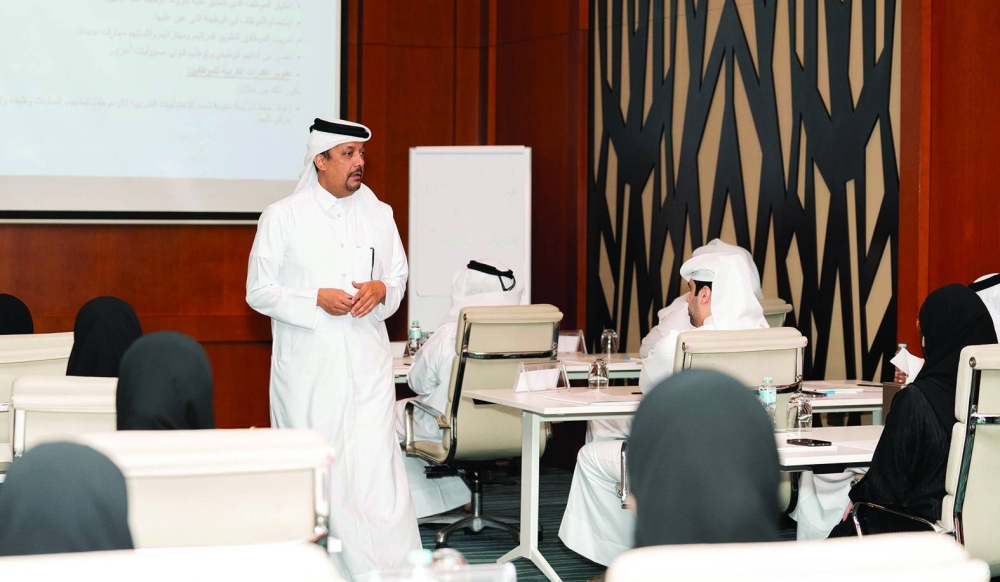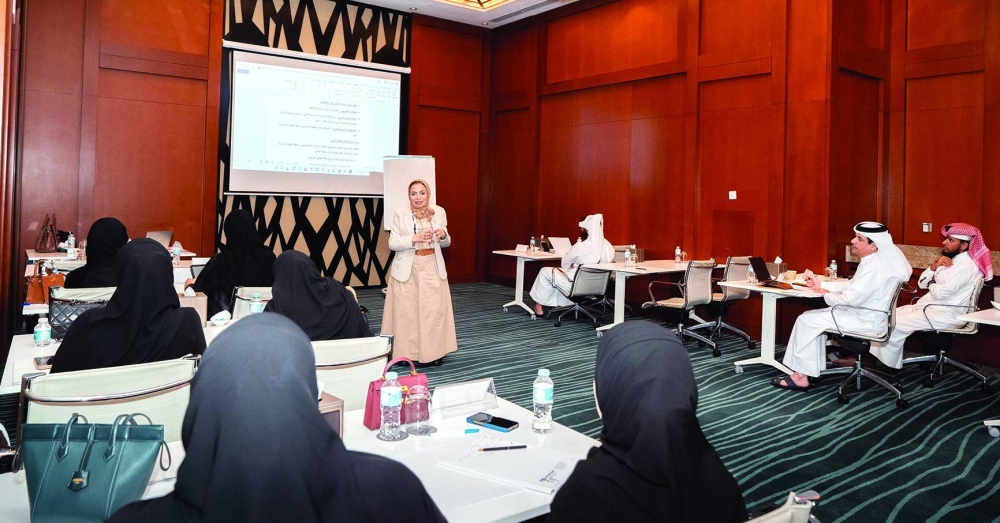The Centre for Legal and Judicial Studies at the Ministry of Justice is organising three training courses for legal practitioners at a number of government ministries and authorities.
The courses, which began on August 4, 2024, ends on August 8. They cover the legal protection of intellectual property in Qatari legislation and international conventions, along with the legal provisions regulating expert work in Qatari law, and provisions of the Qatari civil human resources law.
The course of legal protection of intellectual property in Qatari legislation and International conventions chiefly intends to familiarise participants with intellectual property rights and their legal protection under the Qatari law, through highlighting the general provisions of intellectual property rights in Qatari legislation, the legal provisions for protecting individual intellectual property in Qatari legislation, as well as the role of international conventions in protecting intellectual property rights, along with the role performed by the World Intellectual Property Organisation (WIPO) accordingly.
The course approach involves six-prong themes that have been identified by referring to Law No 7 of 2002, on protection of copyright and neighbouring rights, including the decree No 50 of 1986, approving Qatar's accession to the Arab Convention on the Protection of Copyright, decree No. 33 of 2001, approving Qatar's accession to the Berne Convention for the Protection of Literary and Artistic Works, the TRIPS Agreement of 1994, the WIPO Copyright Treaty of 1996, the Rome Convention for the Protection of Performers, Producers of Phonograms, and Broadcasting Organisations of 1961, and the WIPO Performances and Phonograms Treaty of 1996.
The aforementioned course comprises practical applications on classifications that are subject to protection under the law, and the rights of producers of sound recordings, including a presentation of judicial applications related to copyright and neighbouring rights, a review of resolved disputes, and a presentation of topics and cases related to copyright that are currently before the WIPO.
Additionally, the provisions of the Qatari civil human resources law aims to advance knowledge and legal capabilities of the participants in this field, through illustrating the general provisions and principles of the law, alongside the provisions and regulation concerning appointment to public office, duties and prohibitions related to the job, disciplinary responsibility provisions contrary to legal provisions, the most important rights and privileges enjoyed by public employees, and the rules and regulations for evaluation, training, and development.
The course on the legal provisions regulating expert work in Qatari law, and provisions of the Qatari civil human resources law intends to imbue participants with the knowledge and legal skills to enforce the provisions that regulate the experts' work in the Qatari law, in addition to getting them familiarised with the rules and requirements of practicing this profession, as per purviews of the Experts Department at the Ministry of Justice.
The Director of the Center for Legal and Judicial Studies at the Ministry of Justice, Dr Saleh Ali al-Fadala, stressed the importance of these professional training courses to upgrade the legal researchers and practitioners capabilities and advance their legal skills, so as to gain maximum benefits for the interest of government ministries and institutions which have designed these courses to meet their training needs.
Dr al-Fadala added that the courses primarily aim to advance legal professions in keeping abreast of modernisation in the state legal sector, pointing out that the centre, and under directive of HE the Minister of Justice and Minister of State for Cabinet Affairs Ibrahim bin Ali al-Mohannadi, strives to meet the state training needs in accordance with the third National Development Strategy, and in alignment with the Qatar National Vision 2030 in its pillar related to human development.
Therefore, the centre lays out qualitative programmes and courses that observe the practical aspect to focus on preparing national qualified talents in a multitude of professions and legal fields, as well as the areas that are relevant to the professional technical expertise of legal practitioners in multiple government bodies. (QNA)


